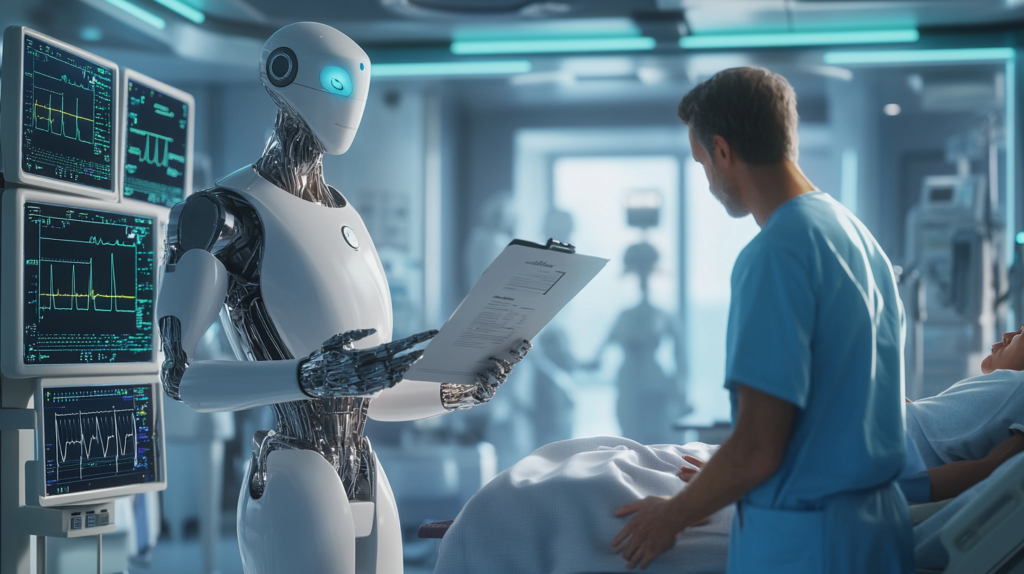Artificial Intelligence may be transforming modern medicine, but according to Demis Hassabis, CEO of Google DeepMind, the human touch still holds irreplaceable value—especially in nursing.
Speaking at a recent event, Hassabis outlined how AI could increasingly take over certain clinical roles traditionally held by doctors, particularly in diagnosis, imaging, and data analysis. However, he drew a firm line when it came to nurses. “I don’t think you’d want a robot to do that,” he said. “There’s something about the human empathy aspect that’s particularly humanistic.”
AI as Doctor’s Assistant, Not Human Replacement
Hassabis, whose team at DeepMind has been at the forefront of AI breakthroughs in science and healthcare, said that machine intelligence is now capable of analyzing medical scans, predicting treatment outcomes, and even designing molecules with superhuman precision. In such domains, he acknowledged, AI may not just support doctors—it could potentially surpass them in accuracy and efficiency.
However, he stressed that while technology could assist or even replicate decision-making processes in medicine, emotional intelligence remains beyond its scope. “Maybe a doctor, one could imagine being helped by an AI tool. But for nursing, where comfort and compassion matter most—AI falls short,” he noted.
The Human Core of Caregiving
Nurses, often the first and last point of contact in a patient’s journey, offer far more than medical care. From calming words to critical bedside observations, they play a deeply personal role. Hassabis acknowledged that these interactions—especially in moments of pain, fear, or vulnerability—are not replicable by algorithms or machines.
This perspective is especially important as health systems worldwide explore ways to address workforce shortages and improve efficiencies through automation. While some tasks may be delegated to AI, Hassabis’s remarks caution against a wholesale replacement of healthcare’s human heart.
A Broader AI Debate: Jobs, Ethics, and Humanity
Hassabis’s remarks come amid global conversations about the impact of AI on employment and human identity. As tools like ChatGPT, AlphaFold, and other generative models become more sophisticated, questions about the future of work—and the essence of human roles—have intensified.
Other tech leaders, including Nvidia’s Jensen Huang and Amazon’s Andy Jassy, have echoed similar sentiments, urging societies to prepare for both massive disruption and new opportunities. Hassabis added, “New jobs will emerge. What matters is that we use these tools wisely.”
Conclusion: Technology With a Human Hand
As AI increasingly reshapes diagnostics and treatment, Hassabis’s comments serve as a reminder that not all healing comes from knowledge—some comes from kindness. In a future powered by machines, the human touch may be more essential than ever.


